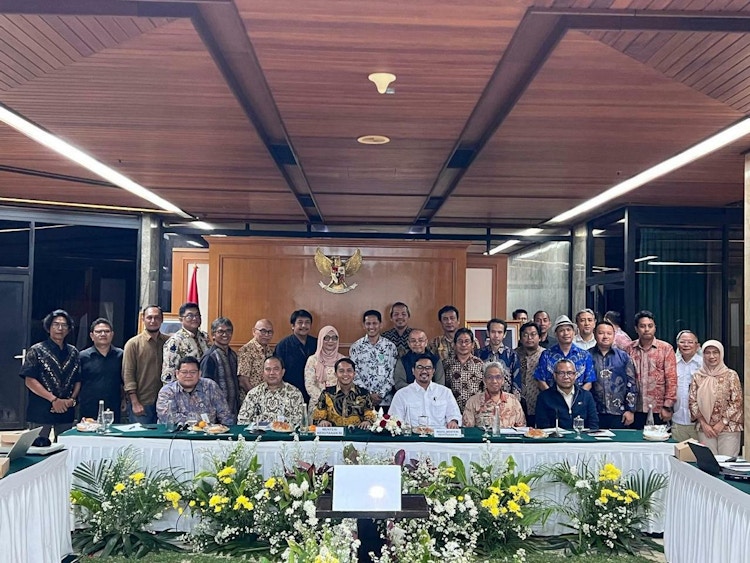Long-awaited breakthrough in recognizing Indigenous land rights in Indonesia.
A new task force has set a goal of recognizing over 4 million hectares of customary forest areas by 2029. According to a leading Indonesian organization, HuMa, this is a significant step that strengthens Indigenous land rights and forest conservation and paves the way for social justice and environmental sustainability.

INDONESIA: The new task force is a long-awaited breakthrough for recognizing Indigenous land rights. Photo: Anja Lillegraven
By Rainforest Foundation Norway.
The Indonesian Ministry of Environment and Forestry has established a new national task force dedicated to accelerating the legal recognition of customary forests - areas traditionally governed by Indigenous communities.
The Task Force for the Acceleration of Customary Forest Designation (Satgas Percepatan Penetapan Hutan Adat) was formally created on March 27th this year. Among its members is HuMa, a leading Indonesian organization dedicated to promoting human rights and environmental justice, and a long-standing partner of Rainforest Foundation Norway.
By contributing with experience and expertise in legal advocacy and community empowerment rooted in Indigenous customary law, HuMa will help ensure that the recognition process is not only legally robust but also inclusive, participatory, and aligned with the principles of ecological justice and Indigenous rights.
“The formation of this task force is a vital step forward—creating space for dialogue and collaboration among multiple stakeholders to accelerate the recognition of customary forests”, says Agung Wibowo, HuMa’s Executive Coordinator.

TASK FORCE: The new task force had their first meeting on May 9th. In the middle, dressed in white, the Indonesian Minister of Forestry, Raja Juli Antoni.
The importance of customary forests
Customary forests (Hutan Adat) are forest areas that Indigenous Peoples have managed according to customary laws and traditions for generations. Official recognition of these forests under national law is essential for protecting Indigenous rights, safeguarding cultural heritage, and ensuring sustainable environmental stewardship.
Administrative delays and legal complexities have historically constrained the legal recognition of customary forests. In some regions, fulfilling the formal requirements for designation has been challenged by varying local legal and political stakeholders. In 2025 a new policy allowed for the simultaneous identification and verification of Indigenous communities (Masyarakat Hukum Adat) together with their respective customary forest areas. This reform reduced bureaucratic barriers to expediting legal recognition, making the transition more efficient.
“These recent advances reflect the Government of Indonesia’s strong commitment to legal reform that empowers communities and strengthens forest protection, setting a promising example of inclusive and sustainable development,” says Neni Indriati, senior adviser at Rainforest Foundation Norway.
The first meeting of the task force
During its first official meeting on May 9, 2025, the task force reviewed key achievements and outlined its targets for the years ahead:
- By the end of 2024, 332,505 hectares of land had been formally designated as customary forests through official land titling.
- Between 2016 and April 2025, 825,275 hectares across 15 provinces had been verified as customary territories and are currently awaiting formal designation.
- In 2025, an additional 173,484 hectares are undergoing verification.
Looking Ahead
The task force is working to process and recognize over 4 million hectares of customary forest areas by 2029.
- For the period 2025–2029:
- 1,417,197 hectares have been submitted for recognition, with all documentation complete and ready for verification.
- 2,544,561 hectares have been submitted but still require the completion of supporting documents before verification can proceed.
The establishment of the task force signals a renewed national commitment to recognizing Indigenous rights and promoting responsible, community-led forest governance. Among Indonesia’s civil society, there is now hope that this initiative can transform forest management in Indonesia through coordinated efforts involving government institutions, civil society, and Indigenous communities, paving the way for social justice and environmental sustainability.
“This task force marks a long-awaited breakthrough in recognizing Indigenous land rights in Indonesia. When customary forests are legally recognized, Indigenous communities are better protected from land grabs and deforestation. That is a win for human rights, climate, and biodiversity,” concludes Indrati.
Contact:

Neni Indriati
Senior Rights-Based Rainforest Protection and Management Adviser, Indonesia and PNG Programme
(+47) 903 60 082
neni@rainforest.no